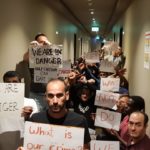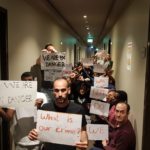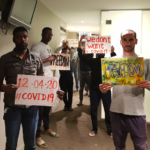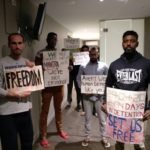Government Moves to Silence Immigration Detainees Under Cover of COVID
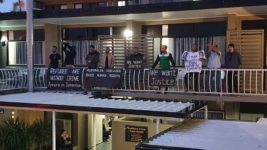
Federal parliament convened for three emergency sitting days last week to deal with legislation that couldn’t wait until after the COVID-19 pandemic. And the Coalition decided a bill allowing for the confiscation of the mobile phones of refugees in detention warranted such urgent attention.
If you believe the hype around the Migration Amendment (Prohibiting Items in Immigration Detention Facilities) Bill 2020 (Cth), it’s all about cracking down on drugs and weapons in immigration facilities.
Indeed, the government even managed to cite paedophiles as a reason for the tough new laws.
During his second reading speech on the bill, acting immigration minister Alan Tudge decried a situation where Australian Border Force and Serco officers are unable to directly seize items in the possession of immigration detainees.
“We are proposing to allow the minister to direct officers to seize mobile phones from certain categories of people,” Tudge said, getting to the crux of the legislation mid-speech, “while providing officers with the discretion to search and seize for mobile phones in other circumstances”.
It must be remembered that the first time these seizure laws were introduced back in 2017 – only to subsequently lapse in the Senate – they were preceded by an attempt by then immigration minister Peter Dutton to simply confiscate mobile phones from everyone in immigration detention.
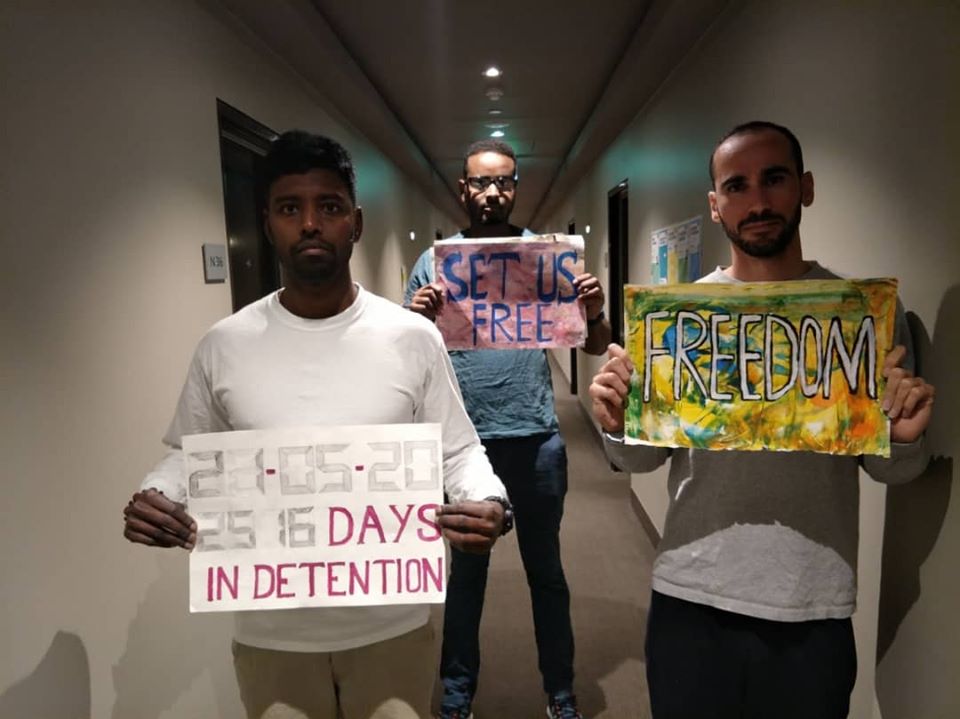
Punishing the innocent
“This is the government’s standard approach, connect legislative reform to terror or crime and it will play well in the conservative media,” explained National Justice Project director George Newhouse. “It is a sneaky and misleading campaign designed to cover up the real purpose of the legislation.”
“The government claims that the use of mobile phones is linked to criminal behaviour,” the human rights legal service’s principal solicitor told Sydney Criminal Lawyers. “This is simply not the case.”
While questions have been raised about the timing of the bill, it has been introduced as there’s been a renewed focus on the continued detention of asylum seekers, when they’re at a heightened risk due to COVID-19. And much of the attention they’ve gained has been via their mobile phones.
According to Newhouse, if the home affairs minister is seriously concerned about any former noncitizen residents now awaiting deportation due to criminal convictions, then these people should be separated from asylum seekers that haven’t broken the law and desperately need their phones.
“Mobile phones are a lifeline to the outside world that enables individuals to maintain their sanity and communicate with their families, their loved ones, the community, their advocates and their legal representatives,” he added.
Silencing dissent
The Prohibiting Items in Immigration Detention Facilities Bill amends the Migration Act 1958 (Cth) so that the minister can determine what things are to be prohibited within facilities, as well as broadening the search powers of ABF and other immigration detention officers to allow for seizures.
Proposed new section 251A of the Migration Act would provide that along with illegal items, the minister would be able to determine that other things are prohibited in immigration detention if they “might be a risk to the health, safety or security of a person in the facility, or to order in the facility”.
The legislation then specifically stipulates that prohibited things can include mobile phones, SIM cards, computers and electronic devices.
The bill goes on to amend a number of other sections containing the powers of “authorised officers” to search, screen and strip search immigration detainees, so they don’t simply have the power to retain objects that are located, but officers would now be able to seize them.
Newly inserted sections 252BA and 252BB would allow authorised officers and their assistants to search immigration detention centres without a warrant. And this would include detainees’ rooms, as well as their personal effects, and it would also allow officers to run sniffer dogs through centres.
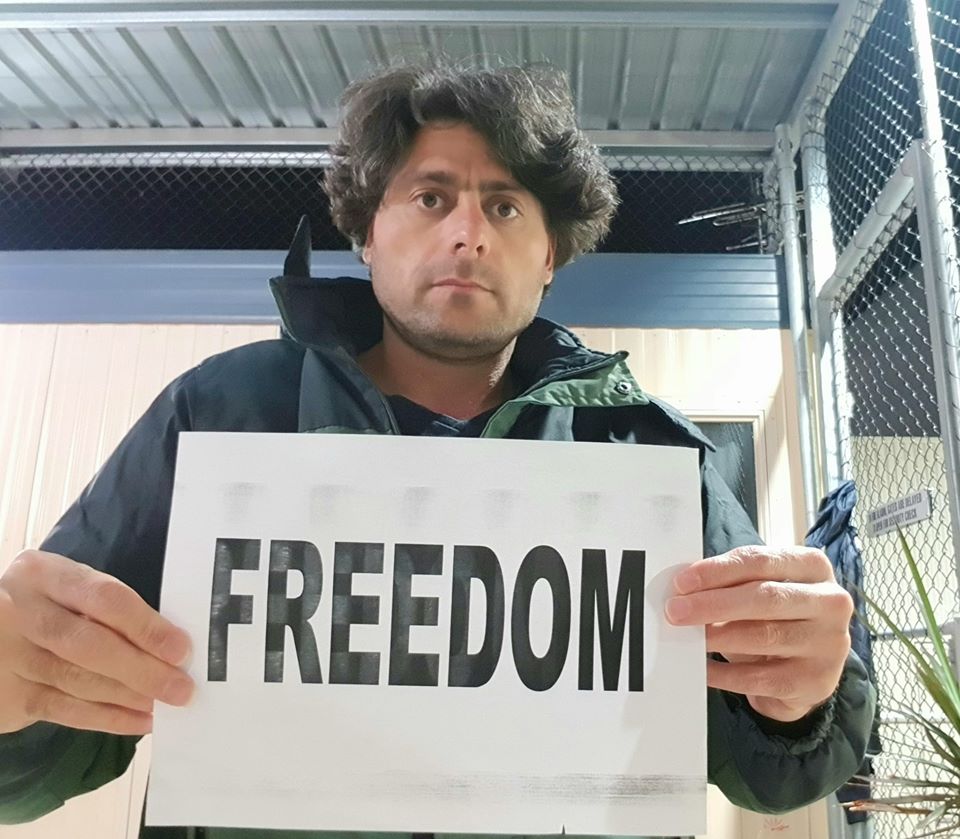
Alternative places of punishment
The bill would also alter the definition of immigration detention in the Migration Act, so that it incorporates what are now known as alternative places of detention or APODs. Currently, two APODs – Melbourne’s Mantra Hotel and Kangaroo Point in Brisbane – have been in the media spotlight.
The asylum-seeking detainees being held at these hotels were brought to Australia under the Medevac laws, after serving years in detention on either Manus or Nauru. These refugees have since been dumped in the APODs and haven’t been provided with the treatments they were flown here for.
The government continues to hold around 1,400 people in immigration detention both onshore and offshore without providing them with any enhanced protection during the COVID-19 outbreak. And guards that don’t practice social distancing come and go on a daily basis.
Former Manus Island detainee Farhad Bandesh recently appeared on the ABC’s Q&A to put a question to the panel via a video, which related to the conditions he and the other detainees at the Mantra Hotel are being subjected to during the pandemic.
Two days after the broadcast, Bandesh was forcibly removed from the Mantra without his possessions and placed in the MITA immigration facility, presumably as punishment. The Kurdish musician had used his mobile phone to send his question into Q&A, thus alerting the nation to his plight.
Hiding ministerial crimes
Mr Newhouse explained that back in February 2017, “the National Justice Project obtained an urgent court order as part of a class action to stop Peter Dutton from implementing a blanket policy of confiscating mobile phones from everyone in detention.”
The human rights lawyer outlined that his team successfully argued that the minister didn’t have the legislative powers to confiscate private property from detainees. And after appealing the decision three times, Dutton went on to draft legislation to allow him to.
And the newly introduced legislation is his second attempt at enabling Australian authorities to swipe the phones from these vulnerable people.
“Phones are an essential tool for communication and for the mental health of detainees,” Newhouse made clear. “But, even more importantly, phones help to moderate the bullying and violence of their guards, who are forced to behave themselves in front of the camera.”
“Undone overnight by a single act of compassion”
“Immigration detention is a putrid place where our government imprisons refugees and deportees,” Newhouse continued, adding that mobile phones are the only way that those inside can notify the wider public to their unwarranted punishment.
As for the impact the laws would have, the lawyer said the refugee family from Biloela that were recently given some reprieve, would have been returned to Sri Lanka last August if they weren’t able to call their lawyers on their mobile phones and “to film the violence meted upon them”.
“The unprecedented and indiscriminate attempt by Mr Dutton to confiscate mobile phones is part of the process of criminalising asylum seekers and fits a pattern of ongoing punishment and cruelty towards them,” Newhouse concluded.


